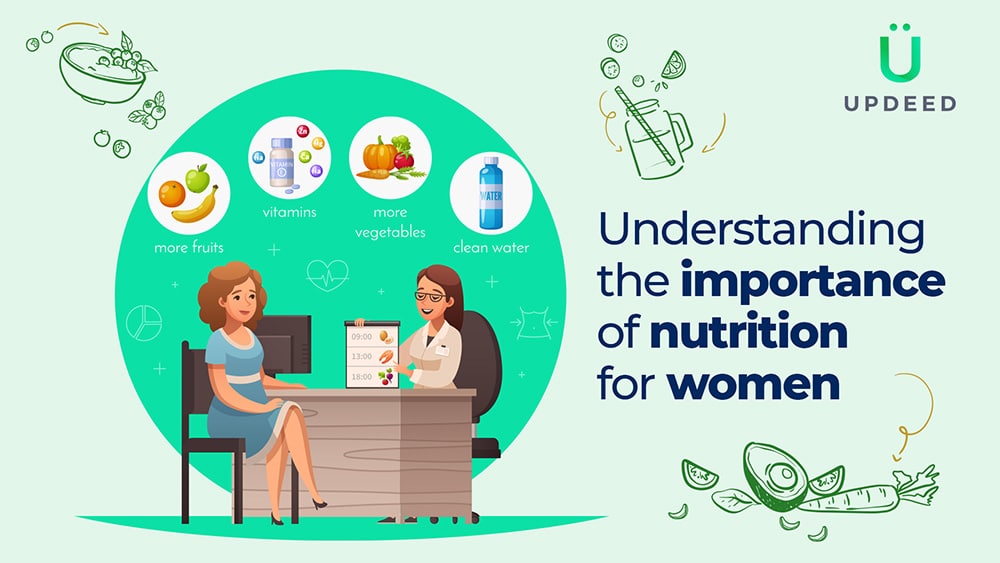Understanding the importance of nutrition for women
The very first question that strikes is – why we need a different nutritional plan for women altogether. Come straight – from hormonal changes brought on by menstruation to having children, and menopause increases the risk of anaemia, osteoporosis, and a number of nutritional deficiencies in women.
To maintain healthy bones and avoid anaemia, it is crucial for women to consume meals high in calcium, vitamin D, B vitamins, and iron. Due to ageing and parenting, women tend to lose lean muscle mass over time.
Take, for instance, fatigue and dizziness are two symptoms of iron deficiency that affect around 1 in 3 women. If symptoms are ignored and underdiagnosed, it affects the consumers’ quality of life and vitality.

So, it matters
Women in our homes are responsible for meeting the nutritional needs of their families and children with healthy foods. The busy schedule and numerous obligations from both home and work make it challenging to handle their own affairs. Hence, it becomes the utmost responsibility of the second gender to contribute equally and shoulder half of the responsibilities onto them.
An individual’s health largely depends on getting enough nutrition. Still, for women, it’s more important. Why? Simple, poor nutrition not only negatively impacts their own health but also takes care of their children’s health. Children of undernourished mothers are more likely to have cognitive deficits, short stature, decreased infection resistance, and a higher lifetime risk of illness and mortality.
Also, mothers with HIV infection may be more prone to pass the infection on to their offspring and to progress from HIV to AIDS more quickly. Women’s productivity, ability to earn money, and capability to take care of their families are all compromised by malnutrition.
Today, it is observed that the majority of women struggle with issues including hair loss, hormonal imbalance, distress, depression, and mood swings. The lack of nutrition for their own body is a leading factor contributing to this. In addition, indicators of nutritional imbalance in women include signs of exhaustion, early facial wrinkling, a loss of shine, and dullness. Women are more frequently affected by certain nutritional deficits, including iron, vitamin D, and vitamin B12.
Up your nutrient game
Women must realise that their bodily needs are different; hence ignorance cannot work for long. It is important to consume dark leafy greens, eggs, egg yolk, red meat, jaggery, almonds, and pecans to gain the superpower of iron, which is essential for delivering oxygen throughout the body as a component of red blood cells, among other essential functions.
They should take advantage of the benefits of calcium from milk and milk-based products in addition to iron, which is crucial for preserving women’s bone health.
So, don’t wait. Try walking, listening to music, or talking to friends to reduce stress because worry and anxiety are also significant energy drainers. Additionally, it’s simple to mistake hunger, exhaustion, and thirst, so ensure you get enough fluids.
UPDEED is a free and open platform for all, to display encouraging stories. Get to know extraordinary impact created by individuals and organisations around you and around the globe. Connect and collaborate with thousands of Mentors, Volunteers, Funders and Donors around the globe to amplify your impact creation and much more to disembark on a journey to make a difference.






👍
Well Said